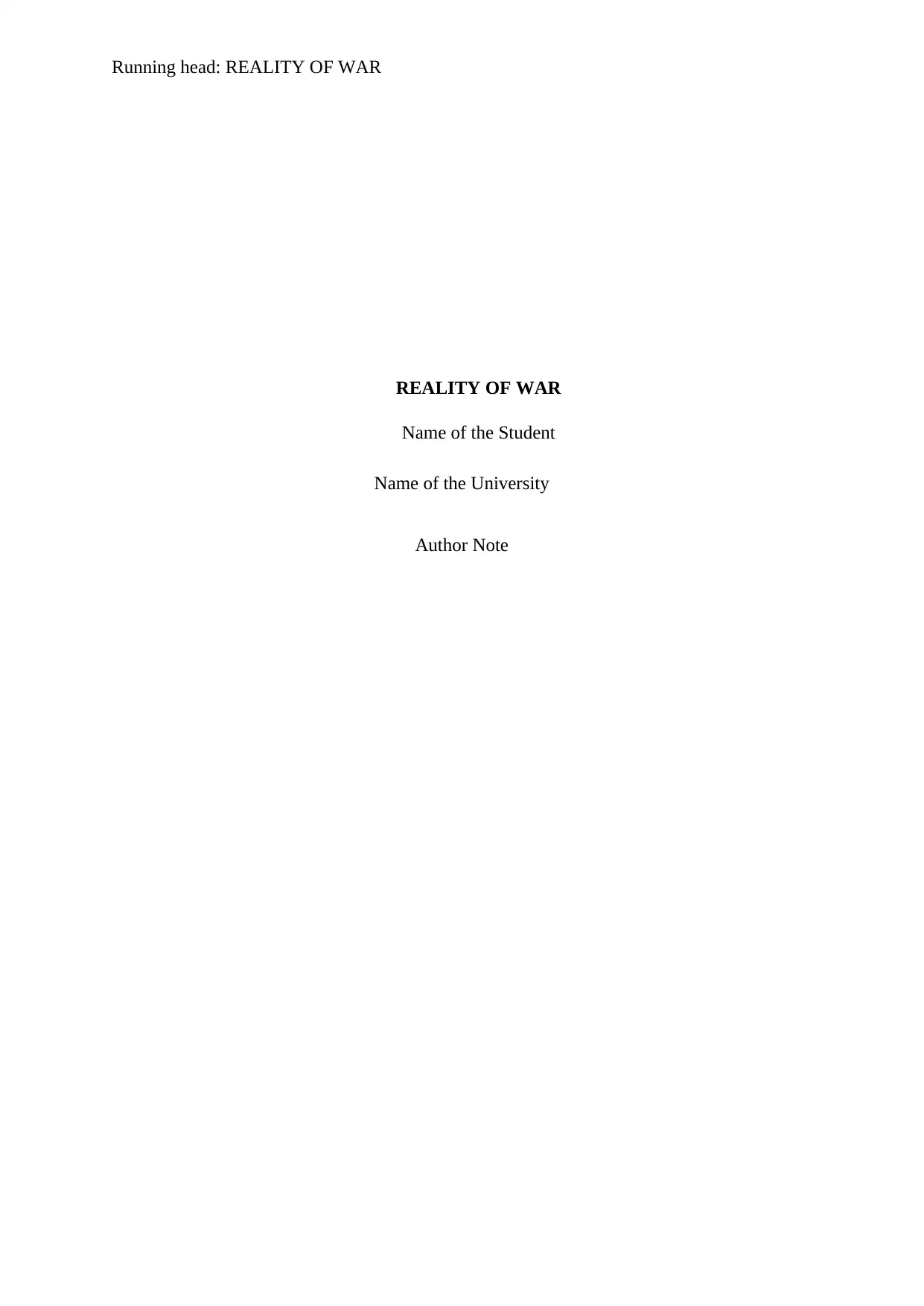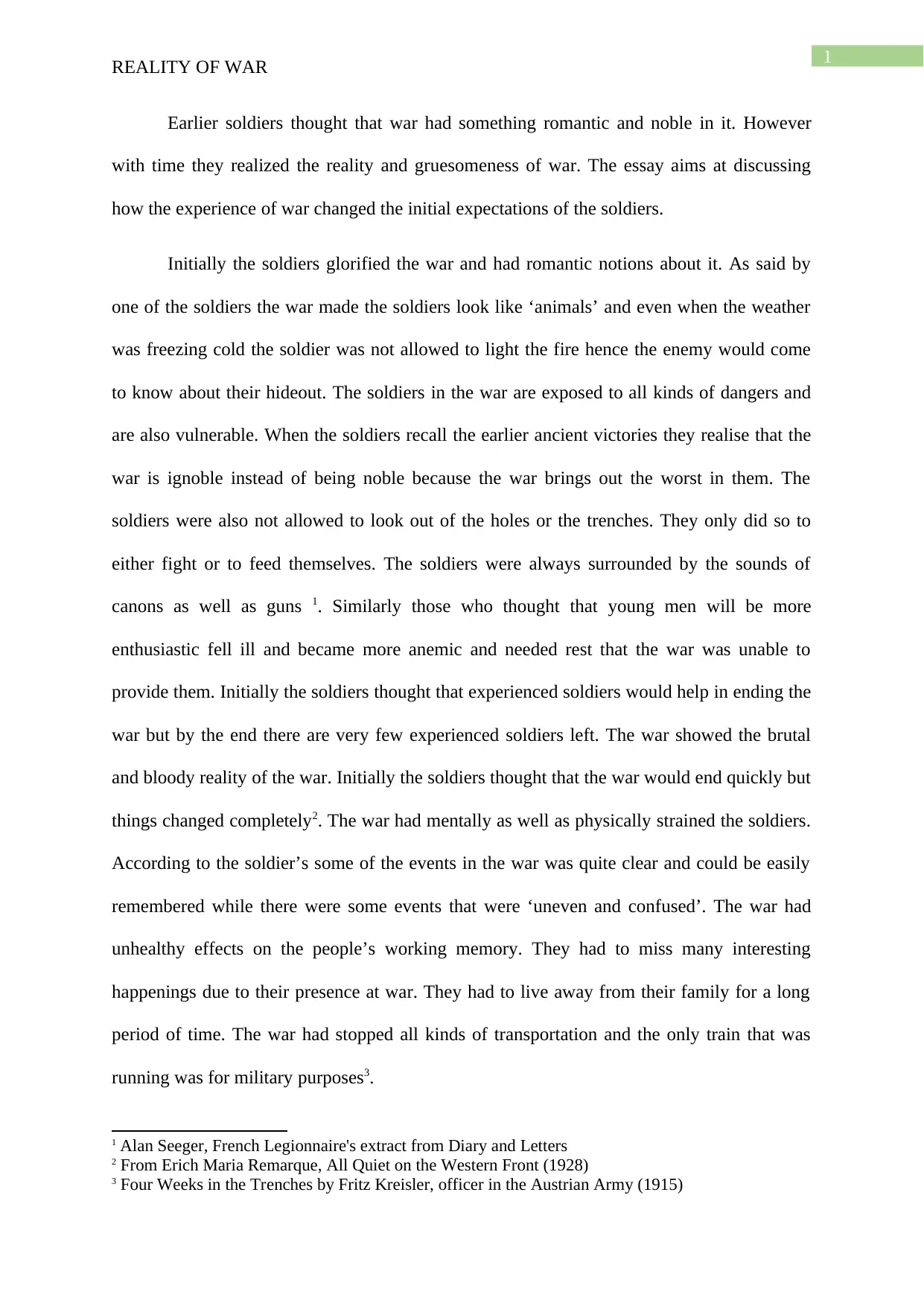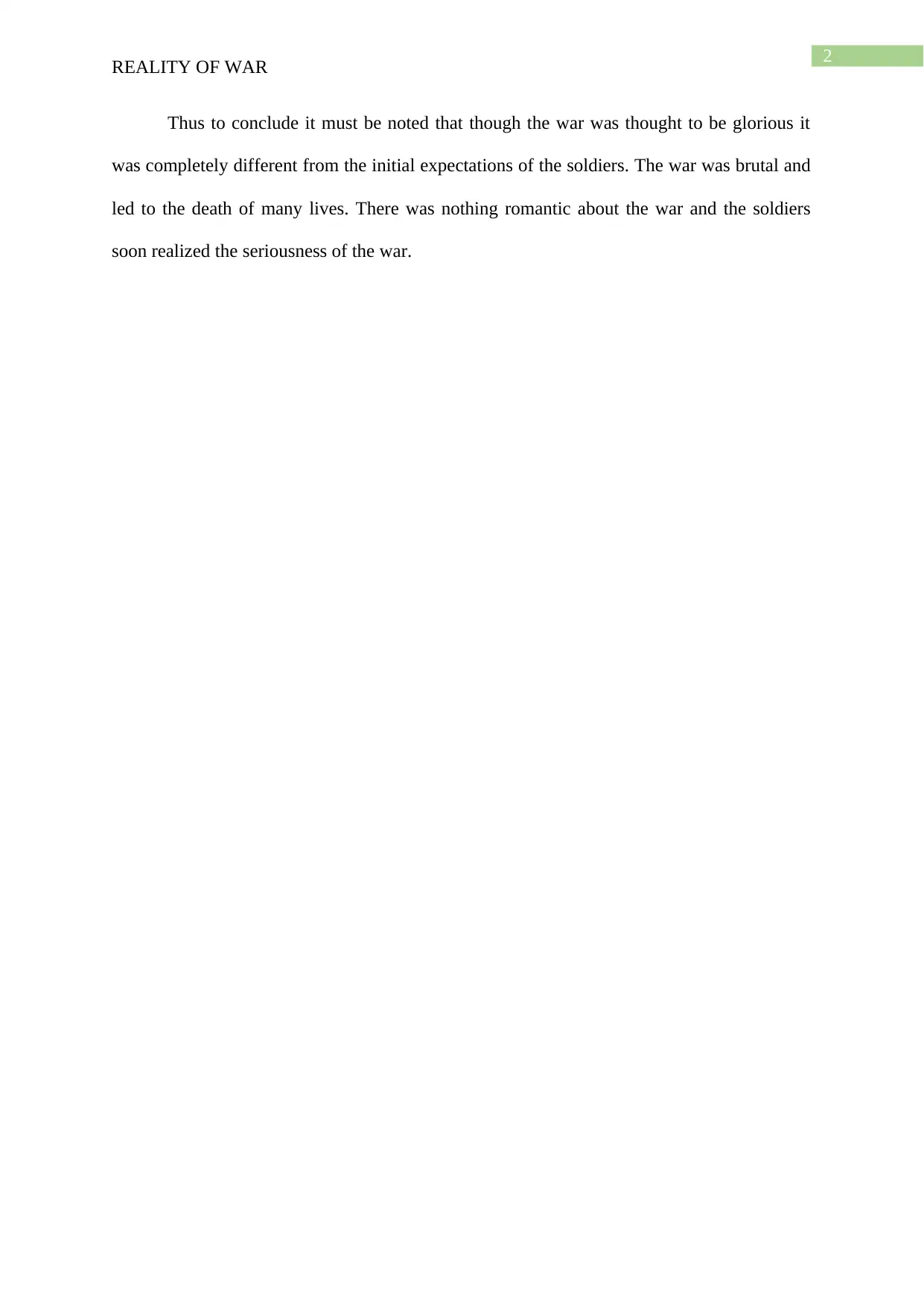The Reality of War: How Soldiers' Expectations Changed in World War I
VerifiedAdded on 2022/08/21
|3
|461
|37
Essay
AI Summary
This essay delves into the profound transformation of soldiers' expectations during World War I, contrasting their initial romanticized views with the brutal realities of trench warfare. The essay highlights how the soldiers' perceptions shifted from glory and swift victory to the harsh experiences of cold, hunger, and the constant threat of death. It explores the physical and psychological toll of the war, including the impact on their mental state and the disruption of their lives. The essay underscores the disillusionment of the soldiers as they witnessed the war's prolonged nature, the loss of experienced soldiers, and the ignoble aspects of combat. The essay also discusses how the war affected the soldiers' working memory and their inability to experience everyday life. The essay concludes by emphasizing the stark contrast between the initial expectations and the actual experiences of the soldiers, highlighting the war's devastating impact on their lives and perspectives.
1 out of 3










![[object Object]](/_next/static/media/star-bottom.7253800d.svg)